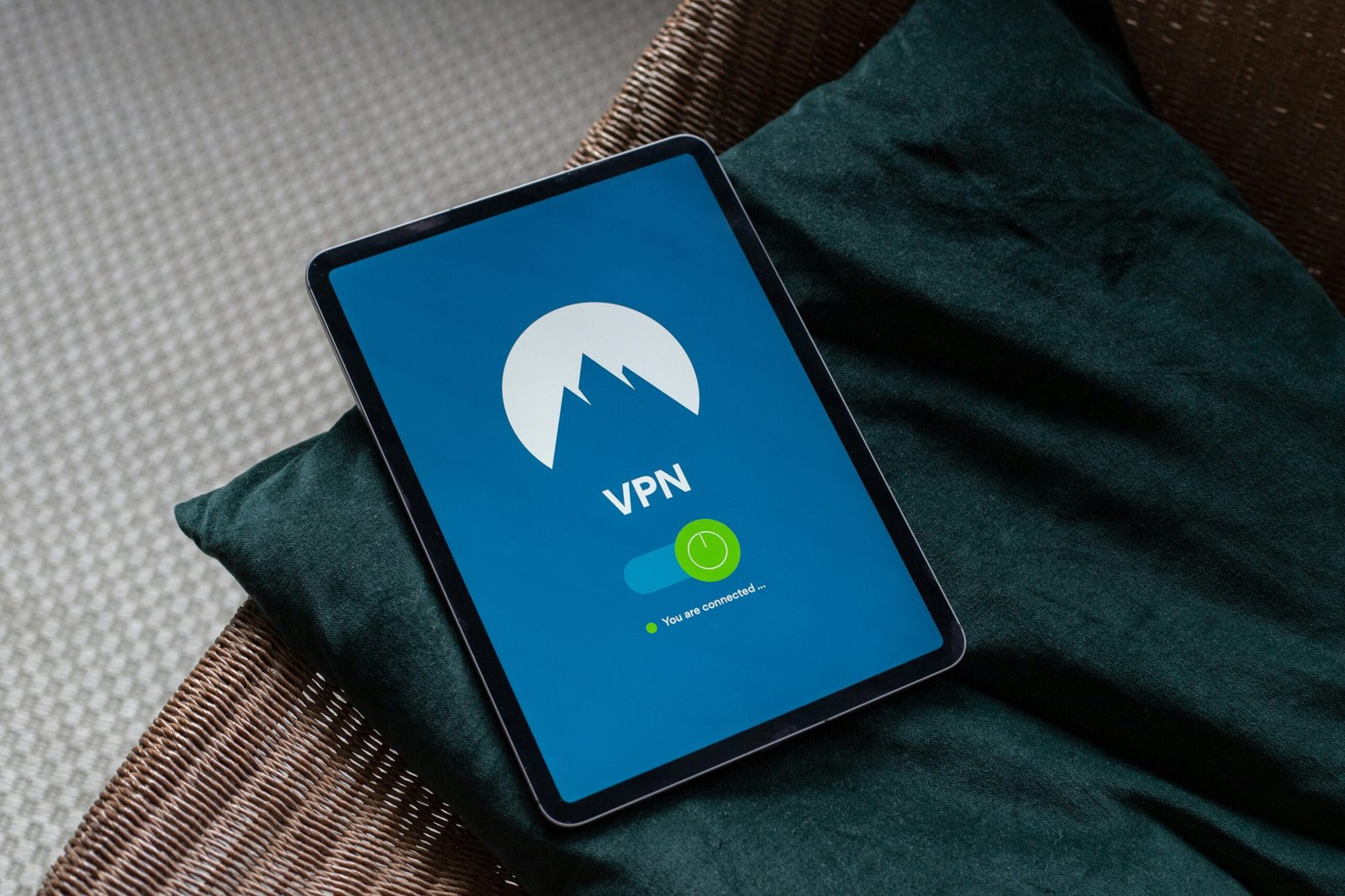
Introduction to VPNs and Online Privacy
In the rapidly evolving digital landscape, online privacy has become a pressing concern for individuals and organizations alike. A Virtual Private Network (VPN) serves as a crucial tool in safeguarding this aspect of internet usage. By creating a secure and encrypted connection between a user’s device and the internet, VPNs enable users to access online resources while maintaining their privacy and anonymity.
At its core, a VPN functions by rerouting a user’s internet traffic through a remote server, effectively masking their IP address. This process not only conceals the user’s identity but also encrypts the data being transmitted. Encryption is a critical component of VPN technology, as it protects sensitive information from being intercepted by malicious third parties. Without a VPN, personal data, including passwords, bank information, and browsing habits, can be easily exposed to hackers, internet service providers (ISPs), and other surveillance entities.
The importance of employing a VPN in today’s digital world cannot be overstated. Various online threats, such as identity theft, data breaches, and invasive tracking practices, make having a reliable means of protecting personal information indispensable. Moreover, the prevalence of governmental censorship and geo-restrictions adds another layer of necessity for VPN usage. By allowing users to appear as though they are browsing from different locations across the globe, VPNs enable access to a wider range of content while upholding privacy.
In conclusion, as digital threats continue to proliferate, understanding the functions and benefits of VPNs is essential for anyone looking to safeguard their online privacy. Utilizing a reputable VPN service is a proactive step towards maintaining security and anonymity in an increasingly interconnected world.
Choosing the Right VPN Provider
When it comes to ensuring total online privacy, selecting the right VPN provider is paramount. A reliable VPN plays an essential role in safeguarding your personal data, making informed criteria for selection crucial. One of the first aspects to consider is the provider’s logging policy. A trustworthy VPN should have a strict no-logs policy, meaning it does not store or track user activity. This guarantees that even in the event of a data request, your information remains untraceable.
Additionally, the jurisdiction in which the VPN operates significantly impacts its commitment to user privacy. Opting for providers based in privacy-friendly countries, such as Switzerland or the British Virgin Islands, adds an extra layer of security since they are not obligated to comply with intrusive surveillance laws. The location of the VPN’s servers is also vital; a diverse server network allows for better performance and accessibility while enhancing anonymity.
Another important criterion to evaluate is the speed and performance of the VPN. A provider should offer high-speed connections with minimal latency, ensuring seamless browsing, streaming, and downloading experiences. Security protocols play a crucial role as well; the best VPNs utilize advanced encryption standards like OpenVPN or WireGuard to protect user data against potential threats.
Moreover, robust customer support is essential. A reliable VPN provider should offer 24/7 assistance to address any issues users may encounter. This can include live chat options, dedicated support articles, and an active community forum. Lastly, while it may be tempting to consider free VPN services, it is essential to recognize that many of these providers can compromise user privacy. These services often come with limitations and may exploit data for advertising revenue. Therefore, investing in a reputable, paid VPN service is advisable for those seeking total online privacy.
Setting Up Your VPN: Step-by-Step Guide
Setting up your Virtual Private Network (VPN) is essential for ensuring online privacy and securing your internet connection. This guide provides the necessary steps for installing and configuring a VPN on various devices, specifically Windows, Mac, Android, and iOS.
To begin, select a reputable VPN provider that meets your security needs. After subscribing, download the VPN application suitable for your operating system. For Windows users, visit the official website of your chosen VPN, locate the download section, and click on the Windows version. Once downloaded, open the installer and follow the on-screen instructions to complete the installation.
For Mac users, the process is similar. After downloading the app from the VPN provider’s website, open the package and follow the installation prompts. Ensure that you grant the necessary permissions for the VPN to operate effectively.
On Android devices, go to the Google Play Store, search for your VPN provider’s app, download it, and enter your login credentials to connect. For iOS users, navigate to the App Store, find the VPN app, and install it similarly. Once installed, open the app and log in using your subscriber credentials.
After installation, it is crucial to connect to a server. Most applications will provide a list of available servers based on location and performance. Select a server that suits your needs; typically, connecting to a server closer to your location will yield faster speeds.
Adjusting your VPN settings is equally important for achieving enhanced security. Within the app, you will find options related to the connection protocol, DNS leak protection, and kill switch features. Enable these settings to safeguard your data further and ensure maximum anonymity while online. Each of these features plays a vital role in maintaining your overall security and privacy through the VPN.
Configuring Advanced Security Settings
When it comes to ensuring online privacy, the configuration of advanced security settings in your Virtual Private Network (VPN) service can significantly enhance your protection. Among these features, the kill switch is one of the most critical components. This option ensures that your internet connection is completely severed if the VPN connection drops, preventing any unencrypted data from being transmitted. To enable the kill switch, navigate to the VPN settings and look for a section that pertains to app or network protection, ensuring it is switched on.
Another essential feature is DNS leak protection. This setting prevents your internet service provider (ISP) from accessing your browsing activity while you are connected to the VPN. To activate DNS leak protection, check the configuration settings within the VPN client, often under a security or privacy tab. By enabling this feature, you can be assured that your DNS requests remain secure and are routed through the VPN, keeping your online activities private.
Split tunneling is also worth considering if you want to manage your bandwidth effectively. This feature allows you to select which apps or websites go through the VPN and which ones utilize your regular internet connection. This can be beneficial for accessing local content while maintaining a secure connection for sensitive activities. To set up split tunneling, go to the advanced settings of your VPN client and designate the specific applications that should utilize the VPN tunnel.
Furthermore, multi-hop VPN connections can offer an additional layer of security by routing your connection through multiple servers before reaching the internet. This method enhances anonymity by making it more difficult to trace your online activities back to your original IP address. To activate multi-hop connections, look for options under the server configuration settings. Implementing these advanced security features not only fortifies your online privacy but also allows for a more tailored VPN experience that meets your specific security needs.
Understanding VPN Protocols
Virtual Private Networks (VPNs) utilize various protocols to secure and manage the data transmitted between a user and the internet. These protocols play a crucial role in determining the overall performance, security, and privacy of your VPN connection. Among the most commonly used VPN protocols are OpenVPN, IKEv2, L2TP/IPSec, and WireGuard, each with its own advantages and disadvantages that cater to different user needs.
OpenVPN is widely regarded for its high level of security and versatility. It supports a wide array of encryption algorithms and operates over User Datagram Protocol (UDP) or Transmission Control Protocol (TCP), which enhances its adaptability across various networks. Though it requires more configuration, its strong encryption makes it a popular choice for users who prioritize security over ease of use.
IKEv2, developed by Microsoft and Cisco, is known for its speed and stability, especially on mobile devices. It can automatically reconnect when a user switches networks, which is beneficial for users who frequently move between Wi-Fi and mobile data. However, it may be less compatible with older devices and has faced scrutiny for potential security vulnerabilities.
L2TP/IPSec combines Layer 2 Tunneling Protocol with IPSec to provide encryption and tunneling. While it offers a reasonable level of security, it is generally slower than OpenVPN and can be blocked by some networks due to its reliance on specific ports. Therefore, it may not be the best choice for those in restrictive environments.
Lastly, WireGuard is a modern VPN protocol that has gained popularity for its simplicity and efficiency. It employs high-speed cryptographic solutions while maintaining a lightweight codebase. Despite being relatively new, it has shown great promise in achieving both security and performance. However, it is still evolving, and its long-term security implications are yet to be fully established.
When deciding on the most suitable VPN protocol, users must consider their individual security needs and internet usage habits. Each protocol offers a different balance of speed, security, and compatibility, thus influencing the choice based on specific preferences and requirements.
Best Practices for Maximum Online Privacy
Maintaining a high level of online privacy while using a VPN is crucial in today’s digital landscape. Users must adopt various best practices that enhance their security posture and reduce potential vulnerabilities. One of the foremost recommendations is to regularly update VPN software. Developers frequently release updates to address vulnerabilities and improve performance. By ensuring you are operating the latest version, you not only benefit from enhanced features but also protect yourself against known security threats.
Another essential practice is the use of strong and unique passwords for all accounts associated with your online activities. Weak or reused passwords are prime targets for cybercriminals. Utilizing password managers can greatly facilitate the creation and storage of complex passwords, further enhancing your online security. Moreover, enabling two-factor authentication (2FA) adds an additional layer of protection. By requiring a second form of verification, even if a password is compromised, unauthorized access to your accounts is significantly mitigated.
It’s also vital to be acutely aware of potential privacy risks while browsing the internet. Cyber threats can arise from seemingly harmless websites, often using tracking cookies or data collection methods to harvest personal information. Employing browser extensions that block ads and trackers can be beneficial in creating a more secure browsing experience. Additionally, being cautious about the information you share online is imperative. Always evaluate the necessity of providing personal data and opt for anonymous browsing options whenever possible.
Furthermore, familiarizing yourself with the specific privacy policies offered by your VPN service can provide valuable insights. Different providers adopt varying policies concerning data retention and leak protection. Opting for a no-logs VPN significantly enhances your online privacy, as it restricts the amount of information that could potentially be accessed by third parties. Each of these practices collectively contributes to a robust approach to maintaining privacy while using a VPN.
The Role of Additional Privacy Tools
While a Virtual Private Network (VPN) serves as a fundamental component for ensuring privacy online, its effectiveness can be significantly enhanced through the integration of additional privacy tools. Each of these supplementary tools serves a unique function that helps bolster security, protect user data, and ultimately safeguard online privacy.
One such tool is Tor, a free software that enables anonymous communication. By routing internet traffic through a network of volunteer-operated servers, Tor conceals the user’s IP address and encrypts data on multiple layers, a phenomenon often referred to as “onion routing.” While using a VPN provides a secure tunnel for data transmission, incorporating Tor adds another layer of anonymity, making it nearly impossible for third parties to trace online activities back to the user.
Another important privacy tool is an ad blocker. Advertisements are not just an inconvenience—they can also be a source of tracking and data collection. By utilizing ad blockers, users can prevent intrusive ads from loading, minimizing the amount of data that is shared with advertisers and reducing the risk of malware infiltrating devices through malicious ads. This serves not only to enhance user experience but also to mitigate potential vulnerabilities that can arise from engaging with online content.
Furthermore, antivirus software plays a crucial role in protecting devices from malevolent threats such as viruses, spyware, and ransomware. Complementing a VPN with reliable antivirus software safeguards against the risks prevalent in online environments, offering detection and removal of harmful elements that could compromise sensitive information.
Incorporating tools like Tor, ad blockers, and antivirus software alongside a VPN forms a multi-faceted approach to online privacy. Each tool, when combined, significantly fortifies an individual’s overall security posture, ensuring a safer and more private internet experience.
Common Myths About VPNs
Virtual Private Networks (VPNs) have gained considerable attention in recent years, leading to the emergence of several misconceptions regarding their functionality and legality. One prevalent myth suggests that using a VPN is illegal. This notion is unfounded; VPNs are legal in most countries, including the United States and the United Kingdom. They are legitimate tools designed to enhance privacy and security on the internet. However, while using a VPN is legal, engaging in illegal activities through a VPN remains unlawful.
Another common belief is that VPNs guarantee complete anonymity online. Although VPNs significantly enhance privacy by encrypting internet traffic and masking IP addresses, they do not provide absolute anonymity. Users might still be identifiable through other means, such as cookies or website tracking technologies. Furthermore, the level of privacy offered can vary significantly between different VPN providers, making it imperative for users to select a reputable service that adheres to stringent no-logs policies.
Additionally, many users assume that VPNs inherently slow down internet speeds due to the encryption process involved. While it is true that some speed reduction may occur, many modern VPNs are designed to minimize performance loss through optimized servers and advanced protocols. In fact, some users may experience faster speeds when connected to a VPN, especially when accessing geo-restricted content or circumventing bandwidth throttling imposed by internet service providers (ISPs).
Understanding these myths is crucial for potential VPN users as they navigate the landscape of online privacy tools. Misconceptions can lead to misplaced expectations and under-utilization of VPNs as vital resources for enhancing security while browsing the internet. Accurate knowledge empowers users to make informed decisions in their quest for online privacy.
Conclusion: Your Path to Online Privacy
In an era where digital threats are ever-evolving, the significance of a secure Virtual Private Network (VPN) cannot be overstated. This blog post has outlined the essential components of a robust VPN setup that is crucial for achieving total online privacy. The discussions around selecting a reputable VPN provider, understanding encryption protocols, and enabling additional security features are vital steps toward protecting your sensitive information from prying eyes.
When considering your online security, it is imperative to acknowledge the risks associated with using unsecured networks. A reliable VPN can act as a protective shield against potential threats, ensuring that your data remains confidential and your online activities private. Moreover, the integration of features such as kill switches and DNS leak protection further fortifies your digital environment, making it significantly more difficult for unauthorized entities to access your information.
As we reflect on the information presented, it is clear that achieving total online privacy is not merely a luxury but a necessity in today’s interconnected world. Users must remain proactive in making informed choices regarding their VPN settings and usage. Regularly updating software, understanding privacy policies, and staying informed about emerging threats should be integral to your online routine.
Ultimately, embarking on your path to online privacy requires commitment and diligence. By applying the best practices detailed in this guide, you can establish a safe and secure online presence. Taking these steps will not only safeguard your information but also grant you peace of mind as you navigate the digital landscape. Prioritize your online security today and take charge of your digital privacy journey.






